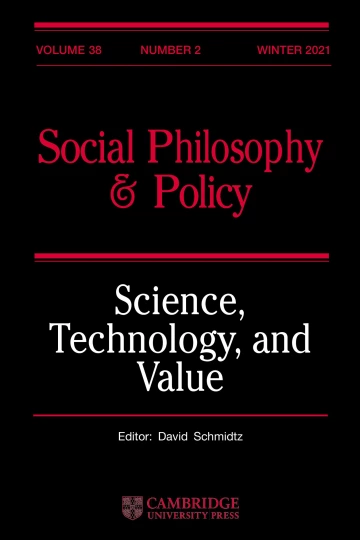Volume 38:2 There is an intimate relation between science and technology. Sometimes science drives technological development, by generating a demand for new instruments or tools to address scientific questions, or by gesturing toward new technological possibilities that we have not yet considered. Sometimes technology drives scientific investigation, by creating demand for technological improvements whose existence requires further scientific research and inquiry, or by raising deep questions about the fundamental principles that underlie that bit of technology in the first place. And importantly, advances both in our understanding of the natural world (arguably, the pursuit of science) as well as the instruments and tools we develop to manipulate it (arguably, advances in technology) do not occur in a vacuum—it is difficult to overstate the cultural, economic, social, and political impacts of the technological and scientific innovations, even if we limit ourselves to those that emerged only in the last 25 years. Conversely, our values have an enormous (but often unsuspected) influence on our judgments about what sort of research should or should not be carried out, whether the findings are true or false, and whether innovations are desirable or not or even beyond the pale.
In this issue we assembled a group of interdisciplinary scholars who reflect on important questions about the intersection of science, technology, and value. It features papers by David Schmidtz, Christopher Freiman, Clark Wolf, Lynn A. Jansen, Iskra Fileva, Nathan Ballantyne, Deborah G. Johnson, Harrison Frye, Sally Stevens, Colleen Murphy, Sanford Ikeda, Daniel Asia and Robert Edward Gordon, Allen Buchanan, and George Gratham.


